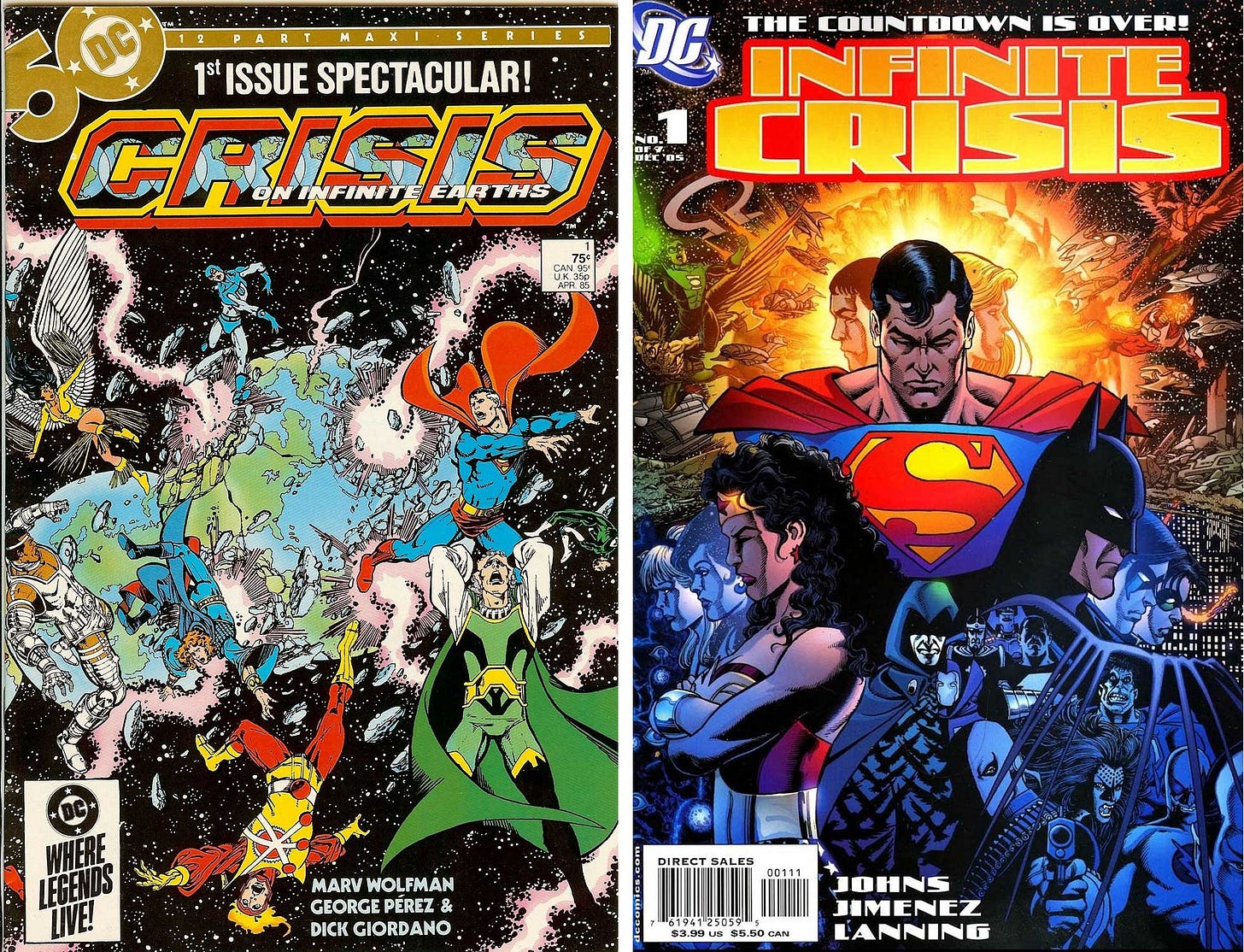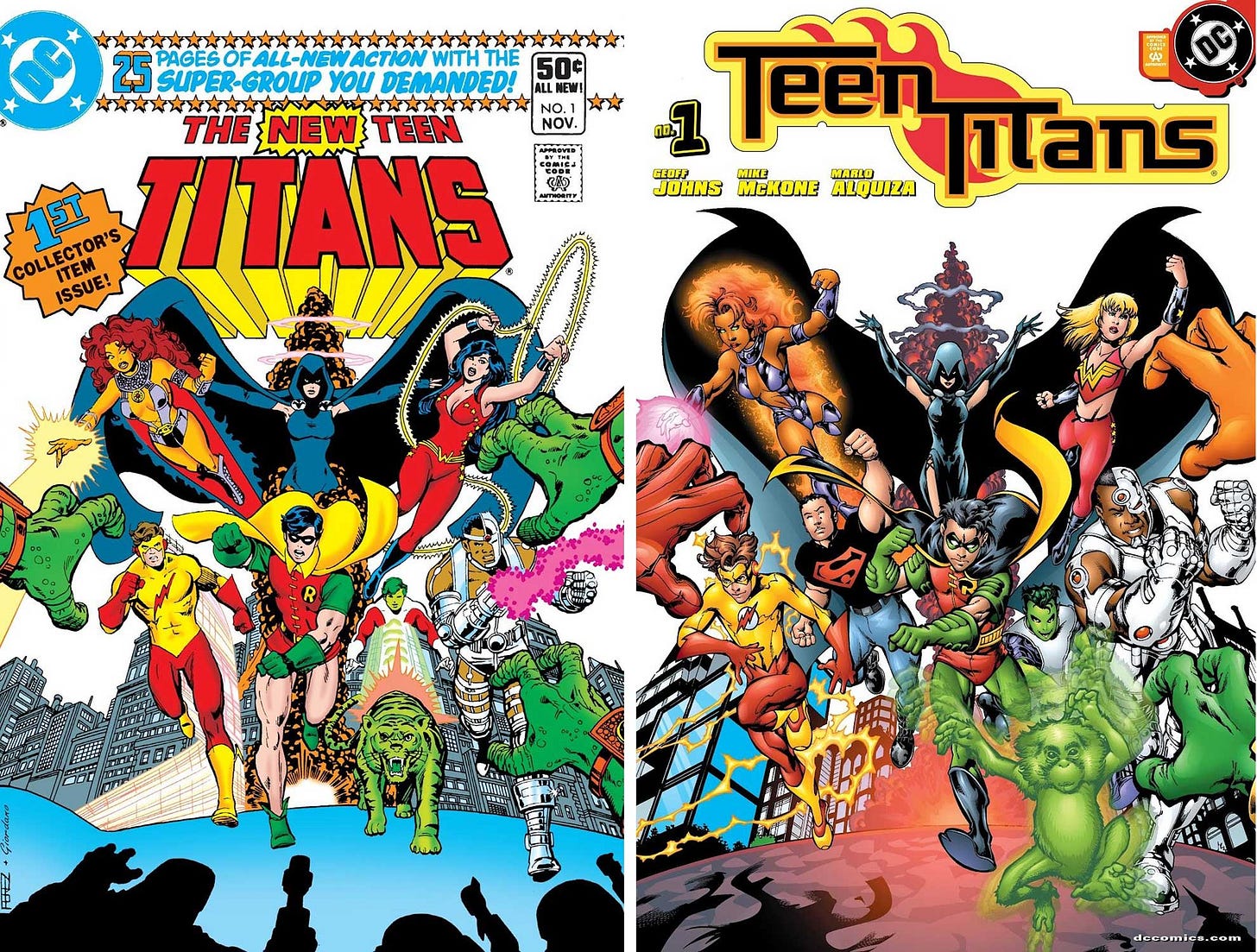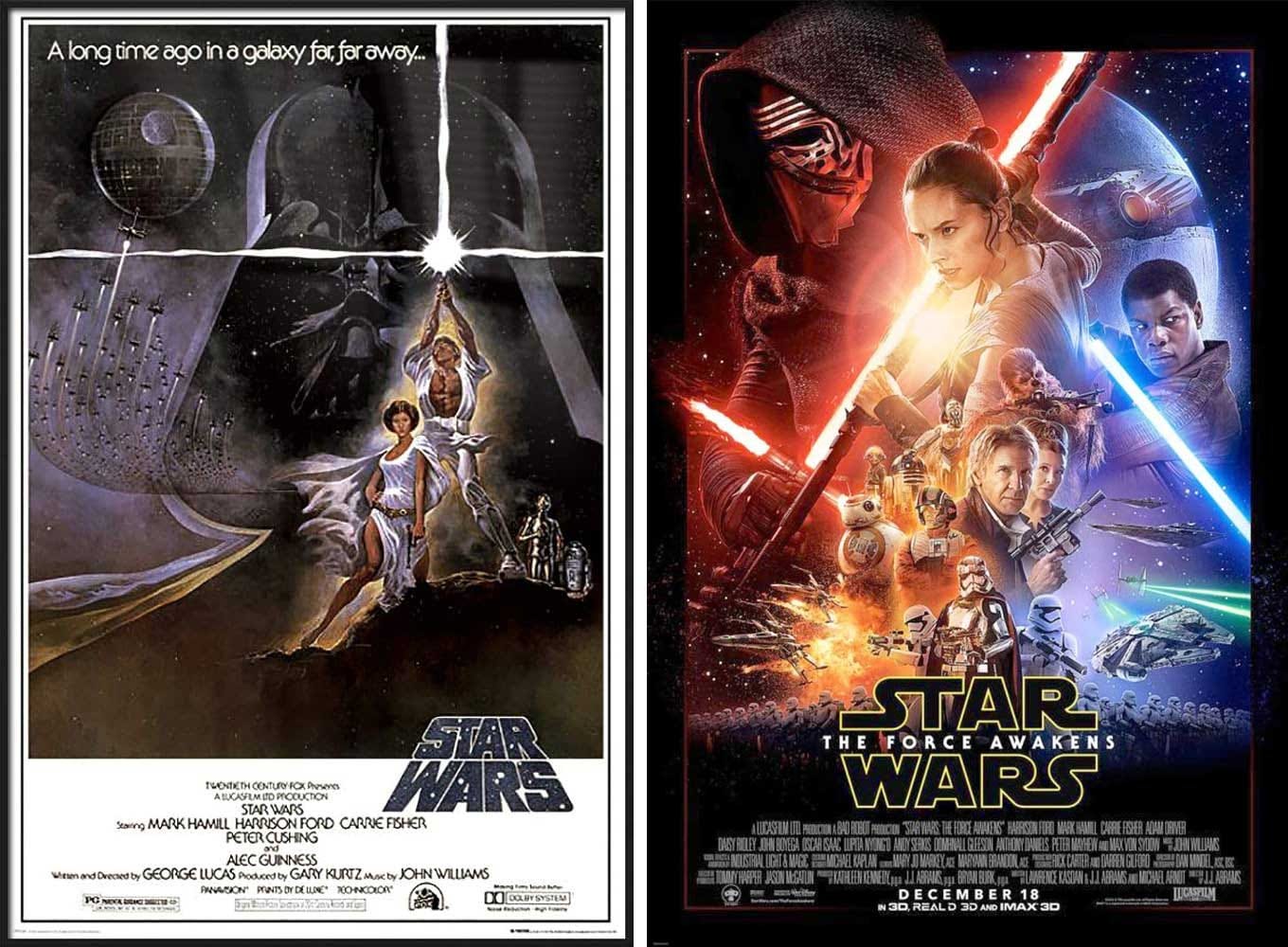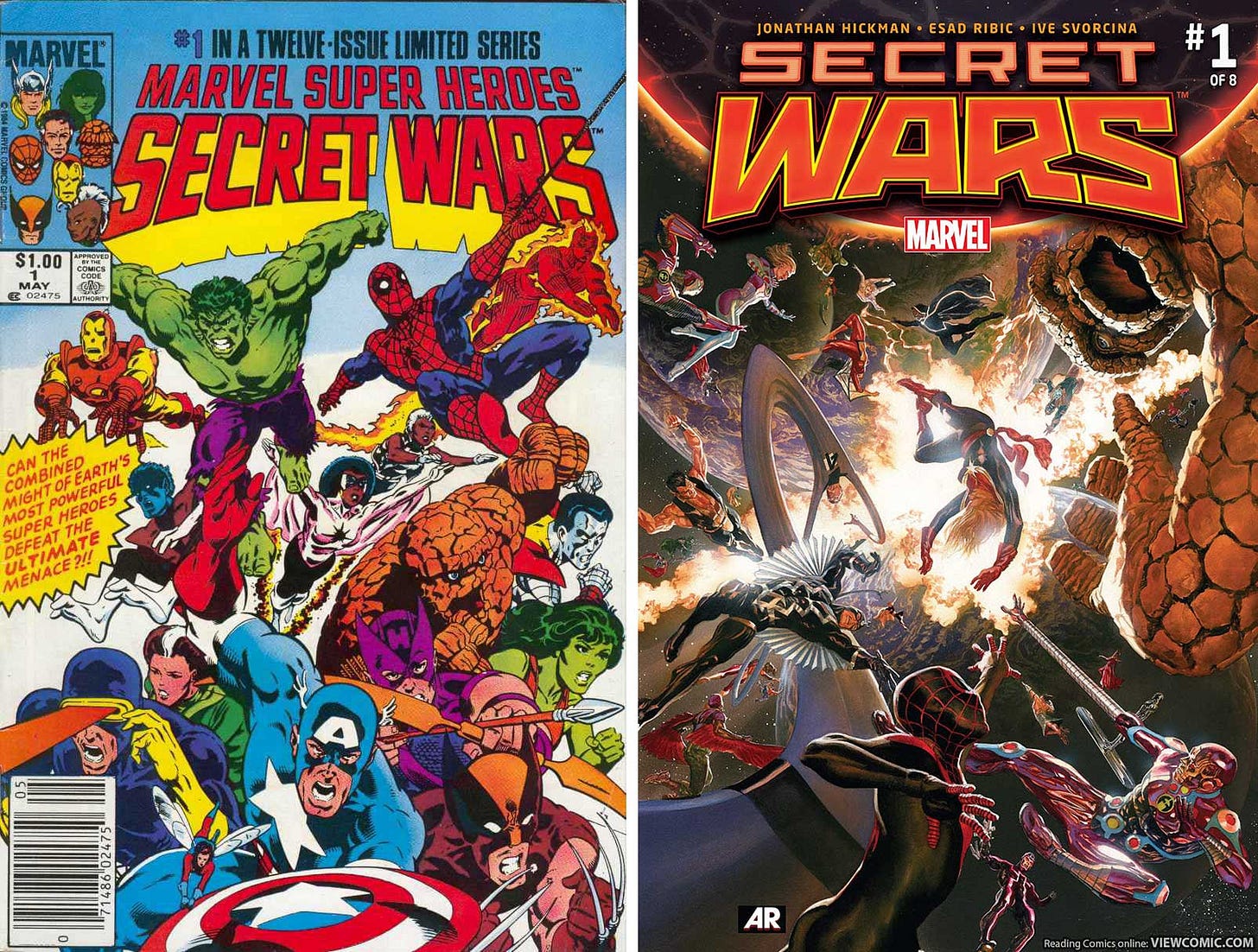If you thought the last newsletter was a bunch of half-formed thoughts and crackpot theories, wait until you get a load of this one…
… because I know this is going to get messy, as I attempt to pick up right where we left off, arguing that -- despite sales evidence to the contrary -- the actual readership for mainstream comicbooks (we’re talking about Marvel and DC superhero comicbooks here) might actually be in as bad a shape as it’s ever been.
Bear with me… and think happy thoughts!
Last time we talked about how my tribe -- professional comicbook creators, I mean -- contributed to the decay of the general readership by falling into the seductive trap of trying to recreate the comicbooks of our youth in the current, modern comicbooks we were making. I even gave it a dumb name: Nostalgia Comics. I argued that this professional, creative influence loop was occurring more and more with each successive generation since the late 1960’s… up until about a decade or so ago. At that point, it seemed to me to become less of an element, generally, in the comicbooks that Marvel and DC were producing.
That’s also about the time when a larger readership started to… well, not seem to care as much. Not collectors, mind you. That’s a different breed altogether. No, I’m talking about readers, and the fact that their emotional investment in the continuing adventures of these venerable characters that, at this point, were pushing 60 (in publishing years) began to diminish. And when you start to lose that… it’s pretty hard to recover from it.
So let’s talk about how it might’ve happened. Let’s talk about the generational aspect of comicbook readers. It tracks in a similar way to the professionals, but with a slight difference. Let’s use some simple math, just to get the conversation going: out of 10,000 Silver Age comicbook readers -- we’re talking about kids here -- let’s say that only one of them grew up to become a professional comicbook creator (which suggests a very unique kind of continued attachment to the medium). That left a lot of kids that simply liked to read comicbooks. Y’know, as a fun thing to do. An engaging hobby. A bit of entertainment to pass the time.
(of course, those kids who loved them went on to form the basis of organized, comicbook fandom, but that’s a different subject altogether…)
The thing is, those remaining kids who liked reading comicbooks usually outgrew them when they reached their teenage years. It was a normal, healthy part of the maturation process.
But that was okay. Nothing to worry about. Because for a long time, there was always a new generation of kids bringing up the rear, discovering and embracing those same superhero comicbooks that had entertained their older brothers and sisters (okay, mostly older brothers). And thanks to the incremental nature of how these superhero continuities tended to develop (see Stan Lee’s “illusion of change”), the basic essence of these superhero characters was always maintained. They were designed (and, let’s face it, sometimes corporately mandated) to remain fairly consistent from one generation to the next, careful never to lose those essential elements that had consistently proved to successfully lure new kids into the hobby.
One thing I’d like to point out, comparing then to now, is that even that third wave of comicbook creators were well aware they were making content for kids. And by “kids”, I mean a readership with an age range of 6 years old to around 12 years old, which had always been the primary demographic for superhero comicbooks. It was only when that median age started to creep upward did the material start to reflect that (coupled with a few pioneering professionals that committed themselves to writing and drawing more “mature” superheroes… risking the oxymoronic implications in order to justify their own confused passions).
Because of that (along with other significant factors that had more to do with distribution than content), we weren't really picking up many new readers; that next generation of kids that we could always depend on simply wasn’t showing up. But that was okay, too, because the onset of Nostalgia Comics caused enough older readers to either stick around and/or recommit to try and make up the difference.
So, yeah. It was a really interesting side effect of creators expending significant effort in recreating the comicbooks they loved as kids… by doing so in the comicbooks they were making, they would lure back that prototypical older reader that was also in the mood to go back and indulge in new, modern comicbooks that so effectively recalled the material they read as kids. We’ve come to call this kind of reader, “lapsed”. It’s a fair enough label, I guess. But they really weren’t lapsed… they had simply moved on from Marvel and DC superheroes. They had grown up. They had evolved.
But I think we can all agree that my own, beloved Generation X led the charge when it came to not wanting -- and not willing -- to let go of our childhood obsessions. For a while, it didn’t take much to keep audiences around or get them back in decent numbers -- at least temporarily. And subsequent generations ably followed suit.
Of course, this phenomenon wasn’t just limited to comicbooks, by any means. It’s how so-called “Geek Culture” really took over in the first twenty years of the Twenty-First Century.
Twenty years ago, I could argue that Batman: Hush pulled in a significant number of readers that weren’t reading that many modern (at that time) superhero comicbooks based on two Nostalgia Comics-related factors: 1) nostalgia for Batman, in general, and especially 2) nostalgia for artist, Jim Lee (mainly by the generation of readers/collectors that were young teenagers when Jim was in his X-Men/Image Comics heyday).
Once again, I should point out that this is not a comment on the quality of that product… or any Nostalgia Comics, really (most of which are, imho, of the highest quality)… this is just me musing on how and why it sold as well as it did.
Another random observation: Nostalgia Comics probably peaked in 2006-07 with Marvel Comics’ Civil War event -- where those comicbooks attracted the largest readership of “non-kids” -- and I believe it's been relatively diminishing returns ever since.
Because here’s the thing… is something legitimately “great” when its main virtue seems to be that it simply reminds you of something that you thought was great when you were ten years old? Debatable. As I said before, they might very well be extremely well-crafted, containing top flight artistry as well as overall production values that are at the absolute peak of modern printing capabilities (questionable and varying paper quality notwithstanding)… but they’re certainly aren’t wholly original, are they?
And here’s yet another reason for a dwindling readership: you have to factor in the ubiquitous nature of Marvel and DC superheroes in general pop culture as we know it now. Why bother reading about your favorite superhero characters when you can 1) watch movies and television shows that present their narratives in a much more immediate, visceral manner, one that requires much less effort on the audience’s part than it does to engage and interact with something like a comicbook, or 2) you can actually live (pretty much) as your favorite character in a video game, often containing visuals on par with the most immersive cinematic experience?
By comparison, for most kids, comicbooks, in general -- specifically in the “floppy” format that Marvel and DC provide -- probably come across as an outdated format, in general. Especially when compared to state-of-the-art Manga or Webtoons on their phones.
There’s no one to blame for this, per se. It’s like trying to assign blame to human evolution. It just happens. For professional creators, we’re just following our bliss. We love comicbooks -- especially the comicbooks of our youth -- and that love can express itself in a way that serves nothing more than a momentary dopamine hit. For Marvel and DC, they’re just trying to make money. Nothing wrong with that, in theory, even as it’s been proven time and time again that it’s easier to make money from short-term, short-sighted decisions than it is from making decisions that prioritize long-term health. Hard to argue that any one faction is “guilty”.
The sad fact is… we’re all guilty.
But I’ll tell you what… it all adds up, and none of this is doing the readers any favors. And it’s yet another reason why so many of them have dropped away. Despite the quality of the material, older readers can rightfully claim they’ve “seen it all”, while younger readers just aren’t connecting to these characters or their current storylines -- not getting the fix they need -- and moving over to Manga or graphic novels or online material, all of which are aimed more directly at them (in both content and marketing). Whatever entertainment option current mainstream superhero comicbooks have been giving them can’t seem to compete.
This is where it’s gotten us. A little knocked back and gasping for air.
But we’re not here to mourn anything. Hell, no. We’re here to celebrate. We’re here to try and look at things as a glorious opportunity. And to honestly ask ourselves, “Where do we go from here…?”
Having been back in the trenches for the past few years, I think I’ve got a few ideas…
(btw, picking up on my polite request for honest feedback in the last newsletter… if the comments section on the Substack site fills up with enough substantial comments, there’s a pretty good chance I might do a proper Q&A-style newsletter where we actually have an actual conversation about this shit. So bring the noize, wouldja?)
Joe Casey
USA









Thank you for posting this, as a Gen-X reader, there was an over reliance in the 00s on cross-over events combined with an over-saturation of 5 or more books with “X, Bats, Spidey, Supes” in the title as well as the price point. The 80s boomer Big 2 books were more complex and took bigger risks creatively and catered to more sophisticated kids. 80s Uncanny X-men had a highly complex mythology. Likewise for DC’s Titans and Legion. There are always outliers, like the Krakatoan X-verse, but runs are shorter nowadays and less creative. Like Star Wars, a lot of comic content services the base audience without creating something special.
I don’t disagree with anything you’ve said. But to add, and it seems so silly, but I feel like a something really important broke when the core legacy titles were renumbered. And then renumbered over and over and over again. Prior to that happening, it felt like you were connected to something “real” that you could latch onto history in a way and channel that. It made SENSE. When that broke, to me it felt like things just fragmented into nonsense. (I mean there were a zillion other missteps that contributed to that but I don’t think you can underestimate the restarts).
And another aspect that was lost because of that was the creator hand off of new blood coming onto a title - picking up the baton of the team that came before. And then to see that team or creator go to another book and do the same. Remember what that was like??? It was magic!
And, sadly, the spell is broken.